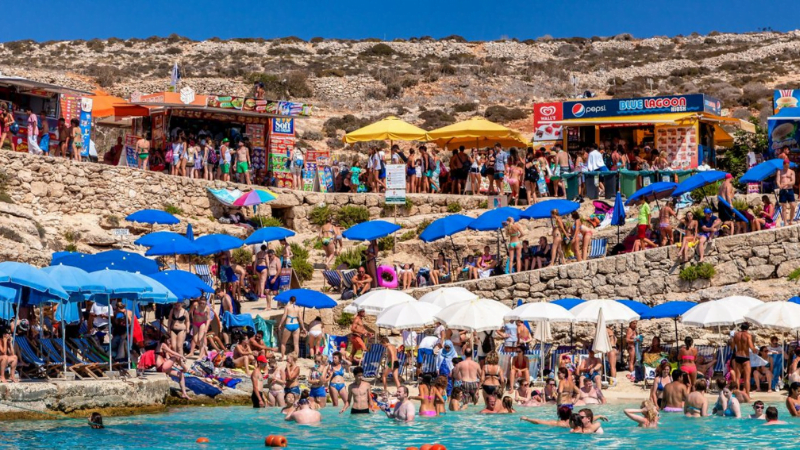According to the 2017 Eurobarometer survey on the use of media in the EU, 73% of the Maltese watch television every day or almost every day in their homes. Moreover, 26% of the Maltese watch TV on their phones, tablets and computers everyday or almost everyday. By far the highest rate in the EU.
In contrast, only 18% of the Maltese read the written press on a daily basis which is dwarfed by the 58% who use social media everyday.
Although trust in the media is on the wane (53% of the Maltese have low or no trust in the media), 45% of the Maltese still tend to trust and believe what they watch on TV, with the second most trusted medium being the internet (35%).
These figures leave little doubt that television and social media play an important role in informing the public and shaping public opinion in Malta. While this is no different from the rest of Europe, the almost complete control of television by the two major political parties puts Malta in a class of its own.
According to the latest Broadcasting Authority study published in December, the State broadcaster (TVM) has an audience share of 38% while the Labour Party TV station ONE has a 16.8% share. In third place, the PN’s Net TV has an audience share of 9.4%.
Given that TVM is controlled by government and is used to manipulate public opinion, these figures confirm that the majority (55%) of Malta’s audience consumes only governing party media, decimating the ability of the Fourth Estate to hold government to account.
A recent Council of Europe report on the media and free speech in Europe highlighted the dangers of excessive concentration of media ownership which it said “is a threat to pluralism.”
Control over the media gives politicians control over people’s hearts and minds. In Malta, the Labour Party effectively has near complete control of what people see and hear on TV while it also has extensive control on the print media who are very much dependent on government advertising and other carrots on a stick such as airtime on national TV.
TVM was and remains an incubator of ignorance and an antidote to critical thought and mature debate. Instead the truth is obfuscated by a steady flow of low-cost drama and reality shows and dimwitted debates.
Then you have social media. Not only does the Labour administration spend millions on online ads but an investigation by The Shift News showed how Labour officials are part of a coordinated campaign to manipulate public opinion through hate groups on Facebook.
The Cambridge Analytica revelations exposed how political parties and campaigns use social media to distort democracy. While there is no doubt that such tactics are not at all alien to the two behemoths in Parliament, social media is used by Labour and the PN to rally their troops and launch coordinated attacks against ‘the enemy’.
As long as ‘the enemy’ is seated in Renzo Piano’s parliament in Valletta these tactics could be viewed as an extension of the ‘sleaze machine’ or what Indro Montanelli termed as ‘la macchina del fango’ used to describe the moral decay of Italy’s establishment in the second half of the 20th century.
Over the last 50 or so years we have witnessed this phenomenon in Malta too, where political opponents were delegitimised, intimidated or punished through fabricated, manipulated and extrapolated stories published on mainstream media and spread through the grapevine.
While equally revolting as any other coordinated effort to destroy opponents, these vulgar and violent methods where somewhat legitimised by the perpetual bi-partisan system.
But when ‘the enemy’ is independent journalism and civil society, the very foundations of democracy are at stake.
Governments, monarchies, institutions and corporations all over the world use the media to manipulate public opinion, distort uncomfortable truths and annihilate criticism. And what we are witnessing in Malta in 2018 is a clear assault on freedom of speech in the subtlest of manners.
Insulting your opponents and making fun of them is within the nebulous limits of freedom of speech but intimidating them and bullying them into silence and submission is a threat to our most basic rights and freedoms.
When such methods successfully force people to censor themselves and retreat from their public and private criticism of government, democracy is in peril because who ever is in power gets away with murder.
The revolution the country needs must free itself from the shackles of partisanship and its grip on the State. It will not be born within any of the two major parties. Nor will it be on TVM or Facebook.
As Gil Scott-Heron wrote and sang, ‘the revolution will be live.’ But it will only come to life if enough people pluck up the courage to ambush the system designed to benefit the few and alienate the rest.












